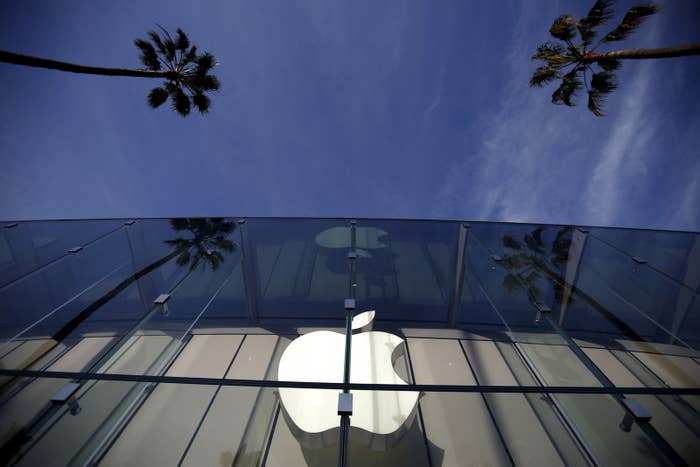
Apple just a got a little help in its Supreme Court battle with rival tech company Samsung. More than 100 designers, including luminaries like Calvin Klein and Alexander Wang, signed an amicus brief explaining why they believe Samsung owes Apple hundreds of millions of dollars for copying the look of the now-iconic iPhone. But Samsung contends that part of the $548 million in damages it was ordered to pay Apple is far too high, and stems from a misreading of the law.
In the court brief filed Thursday, which aims to give the Justices the perspective of experts, the designers argued that visual design isn't merely one aspect of a product — for many consumers, it can entirely represent the product itself. They also argued that since technical products, like cars and cell phones, often share the same engineering features, it's the design that separates one product from another, and that ultimately drives sales.
Samsung is arguing that it shouldn't owe Apple for the entire profit of the phone, only for the certain pieces of it that were stolen.
"When an infringer steals the design of a successful product, it captures the consumer’s understanding of what the product does and what the product means in addition to the emotional connections associated with the company’s brand," the designers wrote.
In October, Samsung will try to convince the Supreme Court that this interpretation of design shouldn't be applied to our understanding of patent law. The company is asking the Supreme Court to reconsider the amount Samsung has been ordered to pay Apple, which was set by a lower court in 2012. Samsung is focusing on a particular portion of the damages: the $399 million in profits it generated from the sale of 11 smartphone models. A court ruled these devices were copycats that stole key design elements from the iPhone: a rectangular face with rounded edges and bezel, and a home screen featuring a grid of icons.
Samsung isn't asking the Supreme Court to consider the underlying patent infringement. Instead, the company is arguing that it shouldn't owe Apple for the entire profit of the phone, only certain pieces of it, since those were the components that were stolen. Apple, in turn, argues that smartphone consumers don't buy pieces of glass and icons; they buy phones.
Apple is arguing that smartphone consumers don't buy pieces of glass and icons; they buy phones.
Mark Davies, an attorney with Orrick, Herrington and Sutcliffe, who filed the court brief, told BuzzFeed News that the case — the first time the Supreme Court has taken up patent law in 120 years — will have far-reaching implications, for both the people who build products, and the rest of us who buy them.
"It's not just about the Apple-Samsung case, as important as it is. What's said here is going to impact the possibility of design," Davies said. "The Supreme Court has to make really clear that it's the design that matters, and when somebody copies your design, you're entitled to all their profits."
A Samsung spokesperson told BuzzFeed News that if Apple prevails, the ruling "could lead to diminished innovation, pave the way for design troll patent litigation, and negatively impact the economy and consumers.”
Apple and Samsung will argue in front of the Supreme Court on October 11.
